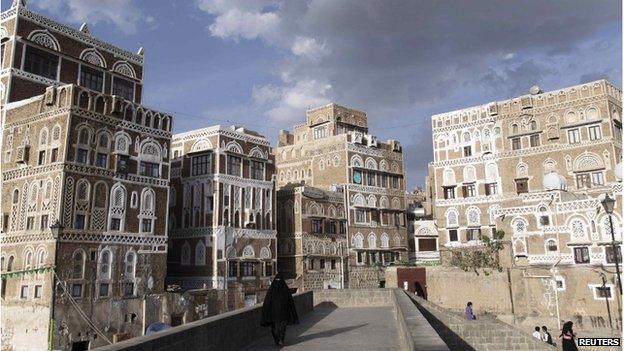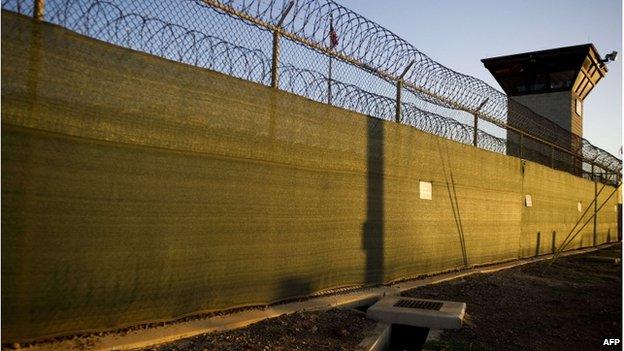Yearning for Yemen: The difficulties of returning Yemenis from Guantanamo Bay
- Published

Returning Yemeni detainees from Guantanamo has proved a headache for the Obama administration
In the controversial history of the US military detention centre at Guantanamo Bay, Cuba, this week marks a small but significant landmark.
A Yemeni national, Mahmoud Mujahid, held there without trial since 2002, is the first to be re-evaluated for transfer and eventual release by a new US government panel set up by presidential order in an effort to hasten the camp's closure.
Previously classed as "too dangerous to release," the alleged former bodyguard to Osama bin Laden has now been transferred from indefinite detention to a list of those "approved for transfer," where he joins 55 other Yemenis.
It took six US government agencies and departments to all sign off on his transfer, namely: Defence, State Department, Homeland Security, Justice, Director of National Intelligence office and the Joint Chiefs of Staff.
But in practice, there is no indication that Mr Mujahid is about to go home soon.
Of all the countries the US is looking to repatriate Guantanamo Bay's remaining 155 inmates to, Yemen presents it with the greatest problems.
Even before the turmoil of the Arab Spring erupted onto its streets in 2011, Yemen was plagued with poverty, insecurity and terrorism.

The US government previously did not trust Yemen to handle returning prisoners
Today it is home to al-Qaeda in the Arabian Peninsula (AQAP), it is riven by power struggles and tribal rivalries, and after a number of earlier failed experiments it has no effective mechanism for rehabilitating former detainees from Guantanamo Bay into mainstream society.
Some of the most skilled and dangerous senior members of AQAP now at large in Yemen are former detainees who renounced violence in exchange for their release.
Such was the US government's distrust of Yemen's ability to handle returning prisoners and stop them joining al-Qaeda or other militant movements that in 2010 it imposed a moratorium on all repatriations to Yemen.
But with the Obama administration's renewed push to deliver on the president's original pledge to close the camp, that moratorium was lifted in May 2013, to be replaced by a case-by-case review.
Yemenis make up the majority of Guantanamo Bay's remaining inmates, with estimates of their number varying from 80 to 88. Others include 18 Afghans, 9 Saudis and 6 Pakistanis, as well as several men from North Africa.
The London-based campaign group Reprieve has been pushing for the camp's closure and says the US government could, if it had the political will, work faster to repatriate its inmates.

- Published10 January 2014
- Published19 December 2013
- Published19 November 2013
- Published11 November 2013
- Published4 November 2013
- Published24 May 2013